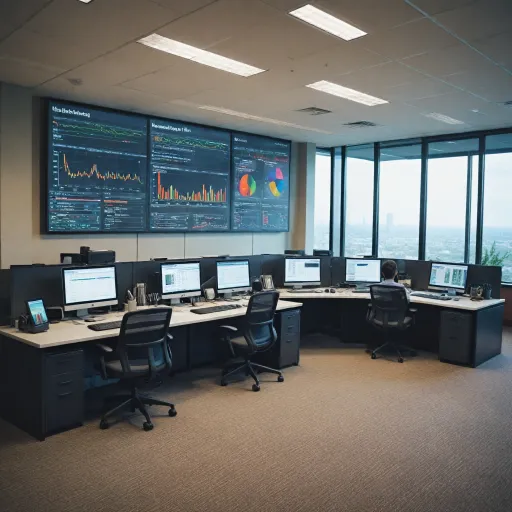
Understanding the procurement specialist job description
What Makes the Procurement Specialist Role Essential?
Procurement specialists play a crucial part in ensuring a company’s supply chain runs smoothly. Their main responsibility is to source goods and services that meet the company’s needs, while balancing cost, quality, and timely delivery. The job description for a procurement specialist often includes managing supplier relationships, negotiating contracts, and collaborating with internal teams to forecast purchasing requirements.
In many organizations, procurement specialists work closely with purchasing and supply chain management teams. They help maintain a steady flow of materials and services, which is vital for business continuity. Their ability to analyze market trends, assess supplier performance, and ensure compliance with company policies makes them valuable assets.
- Key responsibilities: Sourcing suppliers, negotiating contracts, managing accounts payable, and ensuring timely delivery of goods and services.
- Required skills: Strong negotiation skills, communication skills, and experience in purchasing supply or procurement supply chain management.
- Qualifications: Many job descriptions require a bachelor degree in business, supply chain management, or a related field, along with several years experience in procurement or a similar role.
The job type for procurement specialists can vary, including full-time, contract, or project-based roles. For those interested in understanding the various types of employment available in procurement and related fields, there are resources that explain these options in detail.
Procurement specialists must also be adept at using procurement management programs and tools to track orders, monitor supplier performance, and manage budgets. Their work ensures that the company receives the best value from its suppliers, while also supporting broader business goals.
Key skills and qualifications for procurement specialists
Core Competencies for Success in Procurement
Procurement specialists play a critical role in ensuring that a company secures the right goods and services at the best value. To thrive in this job, a blend of technical and interpersonal skills is essential. The job description for a procurement specialist often highlights the need for expertise in supply chain management, negotiation, and vendor relationship management. However, the real-world responsibilities go even further.
- Negotiation skills: Specialists must negotiate contracts with suppliers to ensure timely delivery and cost savings for the business.
- Communication skills: Clear communication with managers, suppliers, and internal teams is vital for successful purchasing and contract management.
- Analytical ability: Procurement specialists analyze supplier performance, market trends, and purchasing data to inform decisions and improve processes.
- Attention to detail: Reviewing contracts, managing accounts payable, and ensuring compliance with company policies require a high level of accuracy.
- Project management: Overseeing procurement programs, coordinating with the supply chain, and managing multiple projects at once are daily tasks.
Qualifications and Experience Needed
Most procurement specialist job descriptions require a bachelor degree in business, supply chain management, or a related field. Years of experience in purchasing, procurement supply, or accounts payable roles are often preferred. Depending on the company and job type, experience with purchasing supply software or contract management systems can be a strong asset.
Some companies look for candidates with certifications in supply chain or procurement management. These credentials demonstrate a commitment to the profession and a solid understanding of best practices in procurement and supplier management.
Soft Skills That Make a Difference
While technical skills are important, soft skills often set top procurement specialists apart. The ability to work collaboratively with managers and suppliers, adapt to changing business needs, and handle pressure during contract negotiations are all valuable. A service-oriented mindset and a focus on continuous improvement help specialists deliver value to their company and ensure timely procurement of goods and services.
For more insights into the essential skills needed in HR analytics and how they relate to procurement roles, you can explore this resource on essential admin assistant skills for effective HR analytics.
How human resources analytics supports procurement hiring
Enhancing Procurement Hiring with Data-Driven Insights
Human resources analytics is transforming how companies identify and hire procurement specialists. By leveraging data from previous hiring cycles, HR teams can better match candidates’ skills and experience to the specific requirements of the procurement specialist job description. This approach helps ensure that new hires have the negotiation skills, communication skills, and supply chain management knowledge needed to manage suppliers, contracts, and purchasing supply operations effectively.
- Skills mapping: Analytics tools can assess which skills—such as contract management, accounts payable, or supplier relationship management—are most often linked to high performance in procurement roles.
- Experience benchmarking: By analyzing years of experience and educational backgrounds, like a bachelor degree in business or supply chain management, HR can set clear standards for specialist job requirements.
- Job type analysis: Data can reveal trends in job type, such as type full time versus contract roles, helping companies align hiring with business needs.
HR analytics also supports the procurement manager by providing insights into how well candidates’ abilities match the responsibilities outlined in job descriptions. This ensures timely delivery of goods and services, as the right specialists are placed in roles where they can excel. For more on how analytics can drive organizational change, visit this resource on influencing and inspiring change through human resources analytics.
Ultimately, integrating analytics into procurement hiring helps companies build stronger teams, improve supplier management, and ensure that purchasing and procurement supply processes run smoothly.
Challenges in evaluating procurement specialist performance
Common Obstacles in Assessing Procurement Specialist Performance
Evaluating the performance of procurement specialists is not as straightforward as it may seem. The job description often covers a wide range of responsibilities, from negotiating contracts with suppliers to ensuring timely delivery of goods and services. This diversity in tasks makes it challenging for managers to set clear, measurable performance indicators.
- Complexity of Responsibilities: Procurement specialists handle purchasing, contract management, and supplier relationships. Their work impacts accounts payable, supply chain management, and overall business service quality. Measuring effectiveness across all these areas requires a nuanced approach.
- Quantifying Soft Skills: Skills like negotiation, communication, and the ability to manage supplier relationships are crucial. However, these are difficult to quantify compared to metrics like cost savings or timely delivery rates.
- Influence of External Factors: Market conditions, supplier reliability, and changes in company strategy can all affect procurement outcomes. A specialist may have strong skills and experience but still face challenges outside their control.
- Alignment with Company Goals: Procurement specialists must align their work with broader business objectives. Sometimes, their impact is indirect, such as supporting supply chain resilience or improving purchasing processes, making it harder to attribute results directly to their performance.
Data Limitations and Bias in Performance Reviews
Another challenge is the availability and quality of data used in performance evaluations. Many companies still rely on subjective assessments from a manager or on outdated job descriptions that do not reflect the evolving nature of procurement roles. This can introduce bias and limit the ability to fairly compare specialists with different years of experience, education backgrounds like a bachelor degree, or job types (such as type full time versus contract roles).
To address these challenges, organizations are increasingly turning to human resources analytics. By analyzing data on procurement supply activities, purchasing trends, and supplier performance, HR teams can develop more objective criteria for evaluating procurement specialists. This approach helps ensure that performance reviews are based on actual results and relevant skills, rather than assumptions or incomplete information.
Using data to improve procurement team diversity and inclusion
Leveraging Analytics to Foster Inclusive Procurement Teams
Building a diverse and inclusive procurement team is not just about meeting compliance requirements. It directly impacts the quality of supplier relationships, negotiation skills, and the ability to manage complex supply chains. Human resources analytics offers actionable insights to help companies improve diversity and inclusion within their procurement specialist roles. Procurement specialists often work in environments where collaboration, communication skills, and negotiation are key. By analyzing data on hiring, promotions, and retention, HR teams can identify gaps and opportunities for improvement. For example, reviewing the backgrounds and experience levels of current specialists can reveal if certain groups are underrepresented in purchasing or supply chain management roles.- Job descriptions: Analytics can highlight if job descriptions for procurement specialist positions unintentionally discourage diverse applicants. Adjusting language to focus on essential skills and experience, rather than unnecessary requirements, can broaden the candidate pool.
- Promotion and retention: Data on career progression helps managers see if all specialists have equal access to advancement, training programs, and leadership roles in procurement supply or accounts payable management.
- Supplier diversity: Procurement teams with varied backgrounds are often better equipped to engage with a wider range of suppliers, supporting company goals for inclusive purchasing and contract management.
| Focus Area | Analytics Application | Potential Impact |
|---|---|---|
| Recruitment | Reviewing candidate sources and job type (full-time, contract) | Broader talent pool, more diverse applicants |
| Development | Tracking participation in training and mentorship programs | Equal skill development opportunities |
| Retention | Monitoring turnover by demographic group | Identify and address barriers to inclusion |
Trends in procurement roles revealed by HR analytics
Shifting Demands in Procurement Roles
Procurement roles are evolving quickly as companies adapt to new business realities. Human resources analytics is revealing several trends that impact how procurement specialists work, what skills are in demand, and how teams are structured.- Digital transformation: The use of procurement software and data-driven decision making is increasing. Specialists with experience in digital tools, supply chain management, and accounts payable automation are more sought after.
- Broader skill sets: Companies now look for specialists who combine negotiation skills, communication skills, and the ability to manage supplier relationships. A bachelor degree in business or supply chain management is often required, but practical experience is just as important.
- Focus on value creation: The job description for a procurement specialist is shifting from just purchasing goods and services to ensuring timely delivery, managing contracts, and supporting company-wide cost savings initiatives.
- Diversity and inclusion: HR analytics shows that diverse procurement teams bring better results. Companies are using data to improve hiring practices and create more inclusive environments for specialists of all backgrounds.
- Remote and hybrid work: The job type for procurement roles is changing, with more specialists working remotely or in hybrid models. This requires new management approaches and the ability to collaborate across locations.













